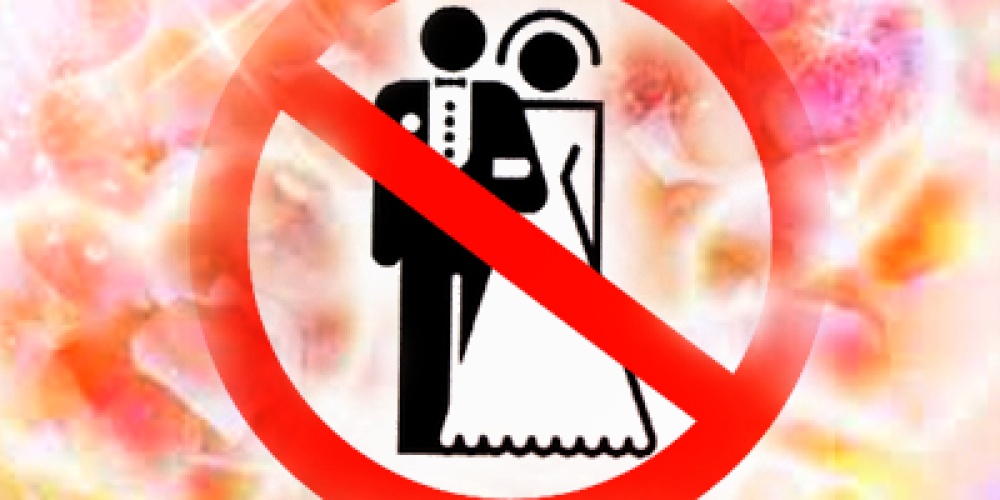On Yom Kippur afternoon, the Torah reading focuses on the Jewish sexual ethic. The Torah has a relatively long list of relatives with whom intimacy would be considered incest. If one were to "marry" one of these people--say, one's aunt--such a union would be of no standing. There is a second group of prohibited marriages, issur kedusha[1], where one may not marry someone; but such a forbidden marriage, while a violation of the sanctity of marriage, would be recognized as valid. As such, this prohibited union would need a get, a religious divorce, to dissolve. These include the marriage of a kohen to a divorcee or one who had chalitzah, the kohen gadol, high priest, to a widow, and marriage with a mamzer(et).
These prohibited but recognized marriages present an interesting case study in the application of the laws of yibum. If, for example, a kohen were to ignore the wishes of the Torah and marry a divorcee and then die childless, the Mishnah rules that the surviving brother, who is also not allowed to marry a divorcee, may not do yibum. However, since the prohibited marriage is recognized under Jewish law--albeit as a sinful one--the second brother would be required to do chalitzah, and only at that point would the divorcee be free to remarry. This contrasts with the cases of incest where, since no marriage is said to have taken place, there is no need for yibum or chalitzah.
There is a third category of forbidden marriages known as issur mitzvah, marriages forbidden by rabbinic decree[2], where a similar law applies--namely, that should one brother marry one of these people and die childless, yibum would not be allowed but chalitzah would be required with the surviving brother. This list includes, perhaps surprisingly, one's maternal and paternal grandmothers and one's maternal aunt by marriage. The Torah could easily have included these on their list of prohibited marriages but did not, strongly implying that these marriages are, in fact, permitted. Thus, the query of the Gemara, "a hint to these second[ary prohibitions], where is it?" (Yevamot 21a). The Gemara answers that it is based on the verse, "Do not do any of these toevot, abominations" (Vayikra 18:27) which implies that while those listed in the Torah are abominations, there are other, lesser prohibitions that are not referred to in the text. "These" are most serious, but there are others that are less so--those prohibited by rabbinic decree.
Yet as serious as "these abominations" may be, there are others "abominations" that are worse still. "You shall not keep in your pocket a stone and stone, big and small...those who do these are an abomination to the Lord your G-d" (Devarim 25:13,16). Commenting on this verse, "Rav Levi said: More difficult is the punishment for false weights than the punishment for sexual immorality" (Yevamot 21a). The Gemara is troubled by this claim. After all, arayot, sexual immorality, (often) carries with it the penalty of karet[3], excision, whereas no such penalty exists for false measures. "What then is the severity of false measures?" To this the Gemara answers that, "for these [sexual immorality], it is possible to do teshuva; and for these [false weights], it is not possible." With teshuva impossible, the punishment need be greater.
When one steals from the public, there is no way to return the stolen goods, it being impossible to identify all the victims. While the Gemara recommends that "one who steals but does not know from whom he has stolen should do with them [the stolen goods] the needs of the community" (Beitzah 29a), such is only a half measure and does not constitute fully effective teshuva. It may be the best one can do, and one may truly be sorry, but that just is not good enough. While teshuva is most powerful--more so than we can imagine--teshuva is not possible if the victim has not been repaid. As terrible as illicit sexual activity may be, one can have sincere remorse. (For another perspective on why theft is more severe than sexual immorality see here.)
Presumably, the notion that complete teshuva is possible in areas of arayot is referring to forbidden intimacy between two consenting adults. But when others are directly impacted, one's sincere regret is--as in the case of public theft--unable to heal the hurt of others. Rashi already notes that teshuva would not be possible if one's illicit activity produced a child who would then be a mamzer. It is regarding such a case that the Mishnah applies the verse, "something that is crooked cannot [ever] be fixed; and something that is missing cannot be counted"(Kohelet 1:15, Chagigah 9a). Similarly, full teshuva would also not be possible if the one engaging in illicit sexual activity was married; it is next to impossible to fully restore the trust with one's spouse. Nor would teshuva be possible in cases of rape or child abuse; while one may know who the victims are, restoring them to their state of innocence is simply impossible. Teshuva has its limits.
[1] Interestingly, these prohibitions are not mentioned here in Parshat Acharei Mot, but with the other laws regarding kohanim in Parshat Emor, and those relating to the general population in Parshat Ki- Teze. The prohibitions mentioned here are of the most serious nature.
[2] The Gemara explains that these rabbinic prohibitions are referred to as issur mitzvah because "it is a mitzvah to listen to the words of the wise".
[3] Actually, arayot in many cases carries the death penalty. Yet the death penalty was almost never carried out, especially in cases of sexual immorality, where the chances of there being two witnesses who first warn the couple and then witness the act are just about zero. Yet karet exists due to the act of sinning itself.

